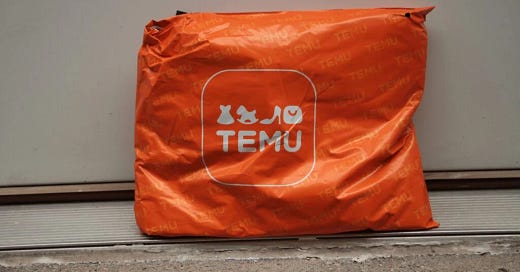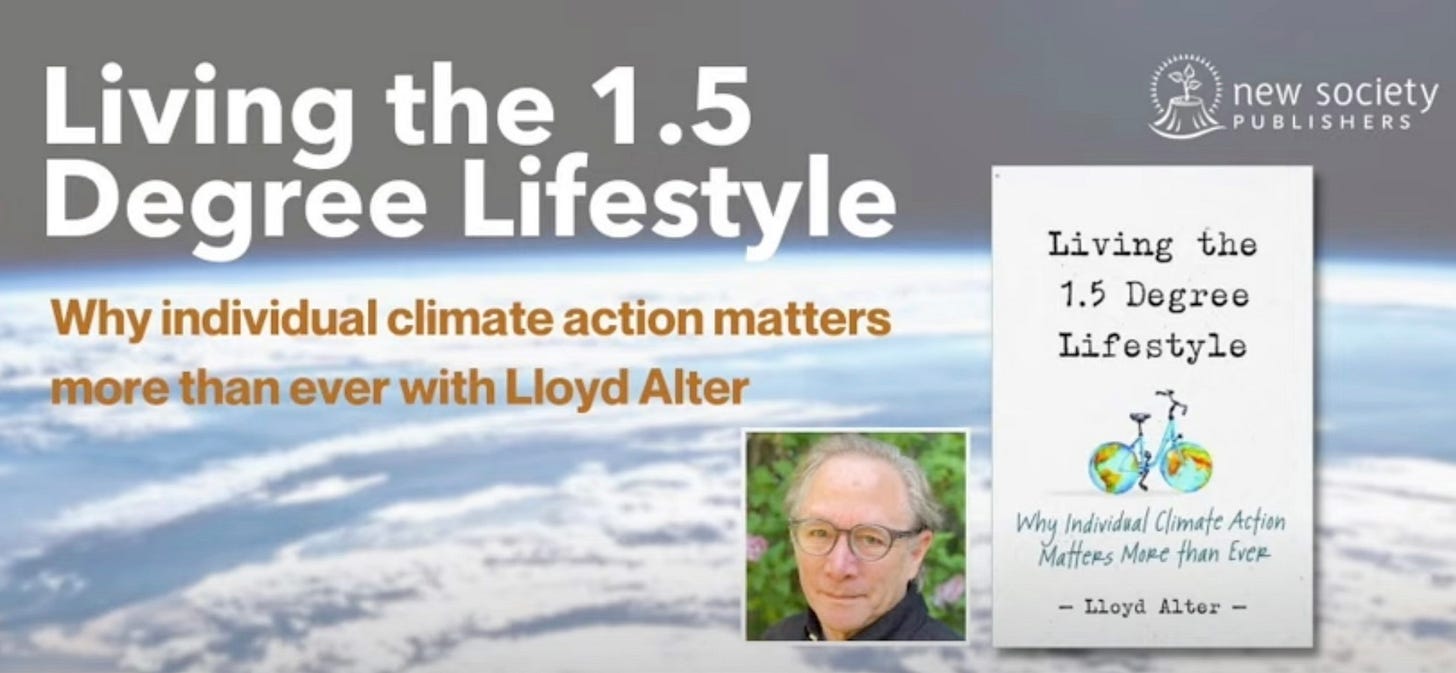One good thing the US government has done: putting Shein and Temu out of business.
A change in the de minimus duty rules will take the equivalent of the emissions from 88 daily trans-Pacific Boeing 777 flights out of the air.
There’s nothing like economic turmoil for cleaning up the sky. After the Soviet Union collapsed, carbon emissions fell 28% due to the sharp reduction in energy consumption and industrial output. The pandemic caused carbon emissions in 2020 to drop 6.3%.
A bit of the President of the USA’s economic turmoil is already having a significant salutory impact on transport emissions. The “de minimus” rule let Temu and Shein ship goods worth less than $800 from China to the USA duty and pretty much paperwork free. They could airfreight a package directly from the factory to your door in a couple of days. Shein became the biggest player in the fast fashion market, taking a 40% share. Temu just launched in 2022, and grew to over 100 million users in the USA.
I didn’t give this much thought until one of my sustainable design students at Toronto Metropolitan University did a cradle-to-gate analysis of the carbon emissions of a pair of pants- fully 75% of the emissions are from airfreight.
It is a brilliant economic model; the companies had no serious North American warehouses or distribution systems, they just let companies like Fedex do all the work. Their shipping costs were ridiculously high, but they saved on everything else. Sure, airfreight pumps out 80 times as much CO2 per tonne-kilometre as shipping by sea, and costs as much as $4.75 per kilogram; fast fashion needs fast shipping and makes fast money.
The volumes were unbelievable; according to Forbes, “Temu and Shein combined ship around 9,000 tons of cargo worldwide every day, or approximately 88 Boeing 777 freighters filled to the brim.” According to Grist, this has a massive carbon footprint. “According to the company’s sustainability report, Shein emitted 16.7 million total metric tons of carbon dioxide in 2023 — more than what four coal power plants spew out in a year.”
Then the President cancelled the “de minimus” rule and slapped 30% duties and a fee of $100 on every package. Poof; the entire business model disappears. According to Reuters, De minimis packages account for around one-third of the total air cargo tonnes coming to the U.S. from Asia, and that trade volume could drop by 75% this year.
Shein and Temu are opening warehouses in the USA to avoid those per-package costs, but their economic advantage over Amazon or Walmart has vaporized. It is basically over for them.
I find it hard to say nice things about a President that is actively threatening my country, but he just took the emissions of 88 daily Boeing 777 flights from China to North America out of the air.
This could be just the start; the tariffs the President has imposed may cut emissions even further. According to the New York Times,
Carbon emissions, largely a byproduct of going places and making things, have always been tethered to economic growth. Forecasters increasingly anticipate that Mr. Trump’s aggressive use of tariffs could tip the economy into recession as companies and consumers cut spending in the face of higher prices for imported goods.
“If we’re talking about a traditional recession, people fly less, they buy less stuff, there’s less investment in capital goods,” said Alex Heil, a senior economist at the Conference Board, who focuses on energy and climate. “And just a slowdown in economic activity is likely to slow down carbon emissions.”
I won’t particularly miss Temu or Shein, never having used them, but I am not enthused about the economic recession that appears to be inevitable in both Canada and the USA. There must be better ways to cut our carbon.
Special offer!
I do not want to put up a paywall on this site, but it provides a meaningful portion of my income. So here’s a limited time offer: I will send a signed copy of the print edition of “Living the 1.5 Lifestyle” to anyone in the USA or Canada who signs up for a one-year subscription (C$50, cheap at about US$34.95 )






This is an angle I hadn’t thought of but absolutely this. In the UK the deminimus ceiling is much lower - £35. These companies were still shipping directly from China. Maybe they were just eating loses.
This is actually a rare case of bipartisan agreement. The Biden administration announced the same policy in September 2024 but was temporarily stymied in implementation by some technical details on international postal regulations.
I agree with the key point here -- its clear that consolidating one-off air cargo shipments into container loads will dramatically reduce the carbon footprint of fast (now slow) fashion. Its less clear that tariffs as a whole will reduce carbon output. In many cases foreign production plus shipping has lower carbon intensity than domestic output. Recessions save a lot of carbon output in exchange for an overdose of human misery.